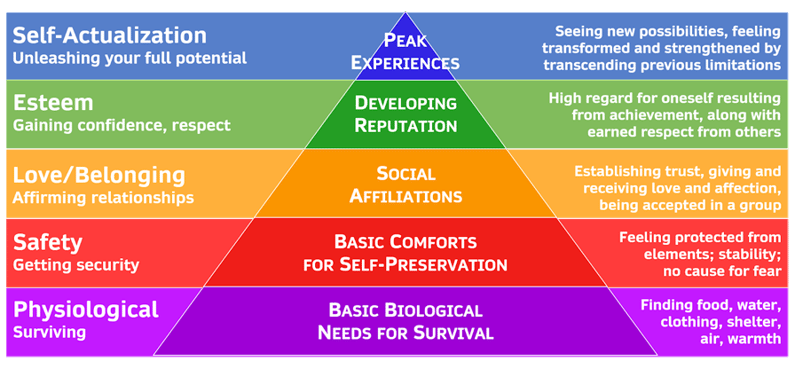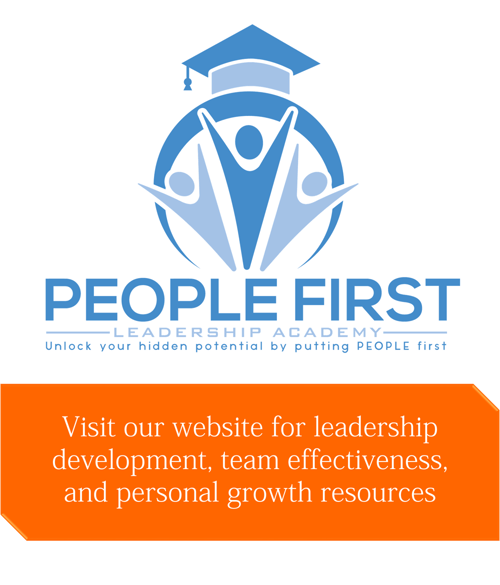Who’s In Control of Your Personal Potential?
Your personal potential is yours (and yours alone!) to recognize and maximize.
It’s not up to HR, your manager, or your leadership team to determine how much potential you do or don’t have. That’s why we discourage the use of 9-box models that suggest your potential is theirs to assess and reward.
Instead, your personal potential is something you control. You’re not inherently limited by what you’ve already achieved. You’re not constrained by some predetermined “luck of the draw” that equipped you with certain traits. And the boundaries of your potential aren’t defined by your personality type, age, experience, education, or life circumstances.
What Exactly Is Personal Potential?
Let’s revisit our definition of personal potential and take a deeper dive.
Potential: a chance or possibility that something will happen or exist in the future; a quality that something or someone has that can be developed to make it better.
Important extracts from that definition:
- Potential is about something possible in the future, not something actual in the present.
- Potential refers to what you are capable of becoming.
- Potent is latent and is not yet discovered or fully developed.
The root word of potential is potencial (Middle English, 1350). It’s original meaning is “potency.”
Your potential, then, is your secret super power. It may even be a secret you’ve kept from yourself.
But “potential” is just half of the phrase. Let’s not forget the first word, because it’s about YOU!
Personal: of, relating to, or coming from a particular individual (e.g. YOU!); undertaken by an individual himself/herself; belonging to or intended for a particular person and no one else;
The origin of the word, personal, is personalis (Middle English, 1350). It’s original meaning, with the Latin “al” tagged on to personis, was exactly the same then as it is now in modern usage.
When you put the two words together, then, you get this definition:
Personal Potential: the full potency of a particular individual, to be determined and undertaken only by that particular individual.
In other words, it’s yours for the taking.
Why Personal Potential Is Often Left Untapped
Abraham Maslow described the fulfillment of self through reaching one’s peak potential as “self-actualization.”

To achieve self-actualization, an individual must first have safety and security in getting their physical and emotional needs met. Then they must develop a high regard for self and earn the respect of others. For many, this seems sufficient and self-actualization is never pursued.
The pursuit of self-actualization comes more naturally, Maslow theorized, to those who are able to tolerate uncertainty, take risks, and remain open to possibilities. Dr. Carol Dweck’s work on Mindset echoes with similar themes about what it takes to develop personally and stretch beyond what one already is or has already achieved.
Maslow described seven behaviors that he believed would lead to self-actualization. They are:
- Maintaining curiosity, adventurousness, and a childlike wonder throughout one’s life.
- Being willing to try new things and to keep an open mind.
- Being intellectually honest with oneself and challenging others when you disagree.
- Applying critical thinking, hard work (practice!), and resilience in your pursuits.
- Figuring out your own values, life goals, and identity.
- Seeking new experiences without becoming overly concerned about failures.
- Taking responsibility and control of your own life, actions, and impact.
These seven behaviors explain why the pursuit of self-actualization does not appeal to everyone. Doing so requires introspection, effort, and stepping our of your comfort zone.
A popular focus on personal development started in the 1960s with the Human Potential Movement (HPM). The foundational belief of this movement is that people can experience more when they focus on developing their own potential and support efforts to cultivate and unleash others’ potential, too.
One of the core tenets of HPM is that each individual should strive for open-ended growth rather than accepting the inherent limitations of others’ molds or societal norms. For example, growing into a job role involves limitations – it is pre-defined and limiting in that it is impersonal, suits the needs of the organization, and has been influenced by others in similar roles. When people work on personal development that is defined solely by a role or a by a professional credential, they may miss out on opportunities to discover what more they are capable of doing.
Similarly, the pursuit of a degree or professional credential forces you to explore and master a set of rigid topics and learning outcomes. Despite your desire and ability to explore some in greater depth, you’re timebound to move through the breadth of requirements.
As you “climb the ladder” of academic and professional success, you’re increasingly likely to measure your potential by other people’s perceptions. That’s a trap! If you fall short of their expectations, you’ll disparage yourself and may come to believe that you’re incapable of achieving certain things. If you exceed their expectations, you may not reach any higher because you’re already being lauded.
That’s why potential should not be measured as a comparison to others, by professional or academic standards, or by anyone or anything external.
Untapped potential is the unfortunate outcome of accepting others’ views, standards, and expectations. It may also be the result of your own negative thinking about your capabilities (because you accepted others’ assessments and internalized them).
That’s not to say that we can ignore professional credentials or others’ expectations. Rather, we should achieve what we can AND make that a pitstop rather than considering it our ultimate destination.
The Choice Is Yours (and No One Else’s!)
It really is up to you.
The quest to unlock your personal potential in one that will always be unfinished. With each new discovery, you’ll find even more that you can strive toward.
This unbounded, limitless potential is something you already have. We all do. It’s there, just waiting for your awareness, interest, desire, and action. Don’t be afraid to open yourself up to what you can be.
If you have self-defeating tendencies that cause you to undermine your own potential, work on those first. Don’t give up before you try. As you’re making those nascent efforts, give yourself grace and permission to fail forward. Learn as you go. Keep an open mind and a spirit of wonder.
If you need a little encouragement along the way, proactively seek it. Our Essentials of Personal Effectiveness course is one free resource that can help you get started. So why not do it? The choice is yours, and you CAN discover and unleash more personal potential than you’ve ever dreamed was possible.

